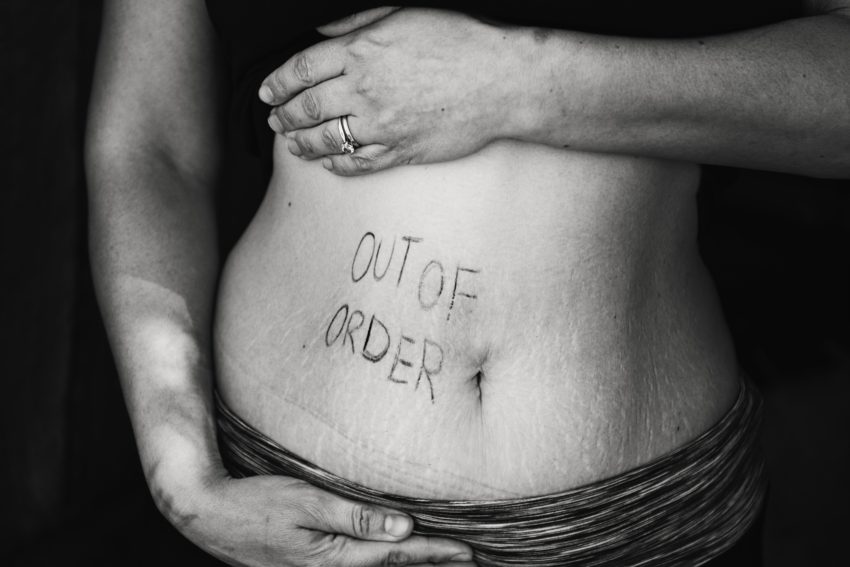When a young woman starts her menstrual cycle, it can come with a good amount of pain from cramping, as well as emotional upheaval associated with changing hormones. For some women, premenstrual syndrome (PMS) can be debilitating, leading to missed school or work, taking a variety of pain pills to lessen the symptoms, and even resorting to birth control pills to balance hormones. There are plenty of options available to deal with the discomfort of PMS, and you can easily strike a balance between traditional and natural approaches to find what’s right for you.
PMS Defined
While the term PMS is bantered around the moment a woman shows signs of emotion and often used as a catchall phrase, it truly is a medical term. Symptoms occur one to two weeks prior to the start of a woman’s period and can range from merely bothersome to downright hellish. Due to a change in hormones as well as chemical fluctuations in the brain, women may experience acne, swollen or tender breasts, fatigue, insomnia, gas and bloating, headache, backache, mood swings, anxiety, or depression.
Is It PMS or PMDD?
When PMS goes bad, it might be more than just PMS. Premenstrual dysphoric disorder (PMDD) occurs during the same timeline PMS does, but it is markedly worse. Women who suffer from PMDD experience more emotional upheaval, including depression, anxiety, extreme moodiness, or severe anger and irritability. While the medical community is unsure why and how PMS transforms into the more complicated PMDD, they do agree that underlying issues of depression and anxiety tend to be present in women who suffer from PMDD. Likely, the change in hormones exacerbates the symptoms these women normally experience, making for a significant transformation for one to two weeks each month.
Common Approaches to Treatment of PMS
Since PMS is composed of a variety of symptoms (that can change from woman to woman), most medical professionals attack those rather than provide a blanket approach. Traditional medicine may include pain pills, antidepressants, and birth control pills. But even allopathic physicians suggest lifestyle changes to combat the symptoms of PMS.
Diet and exercise have proven quite effective in lessening the pain and emotional issues for some women experiencing PMS. Avoiding caffeine, salt, and nicotine can help to diminish some of the symptoms. Especially with cramping, strengthening core muscles through yoga or weight-bearing exercises can make a significant difference when those muscles are shedding the uterus lining once a month.
Solutions for PMS
Traditional and non-traditional medical professionals have reached a bit of common ground on how to tackle PMS issues, but there are still some natural options that allopathic physicians may not suggest. One is supplements and herbs. Calcium, folic acid, vitamin B6, chasteberry, black cohosh, and evening primrose oil have all been used to lessen pain and emotional upheavals in some women. There are also some great Chinese herbal formulas for PMS. A favorite is the PMS Relief Herb Pac from PAC Herbs: Just one or two packets each month may be enough to resolve symptoms.
Acupuncture works well in some cases because it treats the body as a whole system while still addressing individual symptoms. Through placement of needles along specific locations of the body, acupuncture helps to regulate the ovarian cycle and improve the balance of hormones and blood flow to the uterus. Symptoms of PMS can be reduced through the effects of acupuncture that increase relaxation, reduce tension and inflammation, and stimulate nerves across the body, which leads to a release of natural steroids and endorphins.
Your Specific Treatment Plan
Since each woman experiences PMS differently, it’s important to share with your medical professional all of the symptoms you’re having so he or she can create a treatment plan that works for you. Some things you can do now include the standard approach to wellness: Exercise regularly, eat a diet full of whole foods, and get good sleep. Stress reduction can also be key to reducing symptoms of PMS, so that those hormones don’t get out of control!
Curious if acupuncture can make a difference in dealing with your PMS symptoms? Contact us at 602-955-5444 to schedule your appointment.



